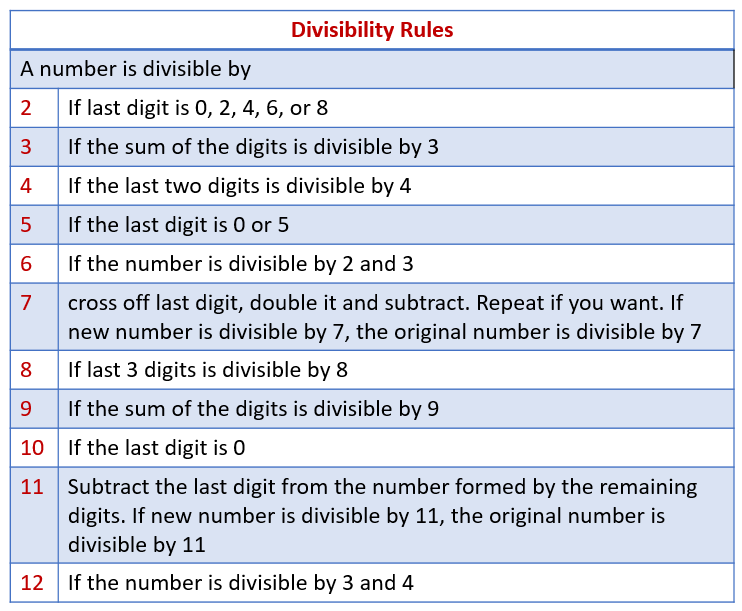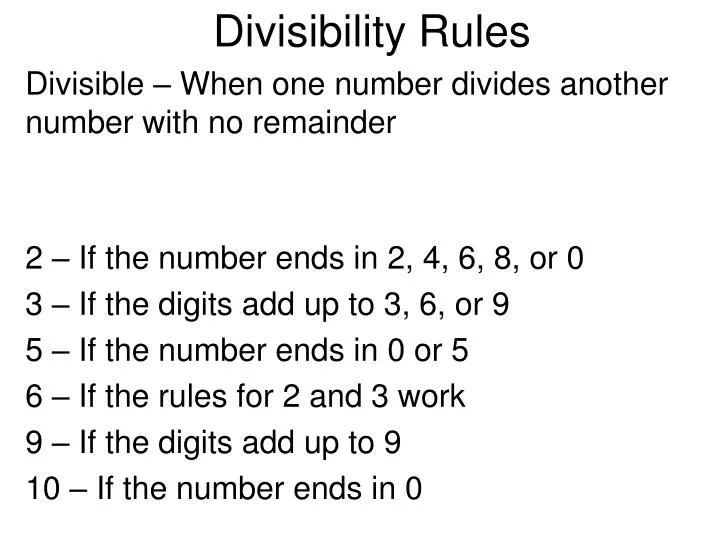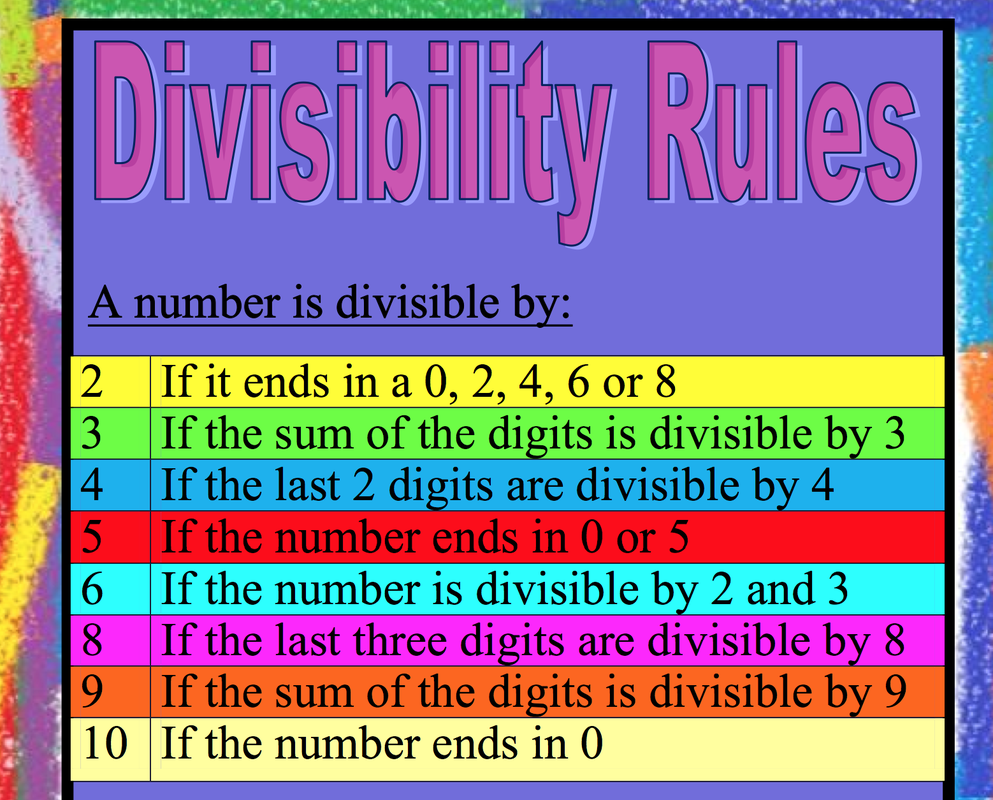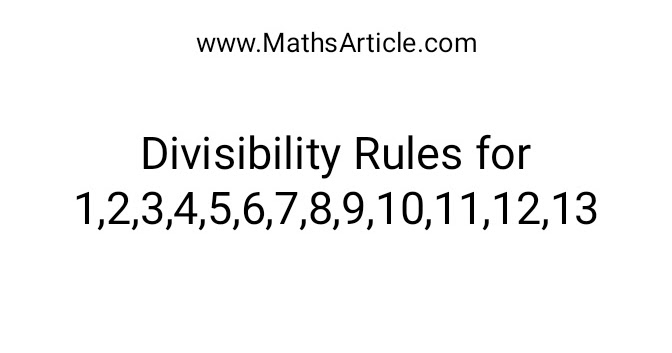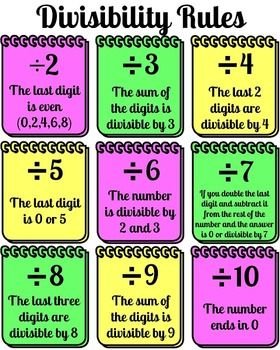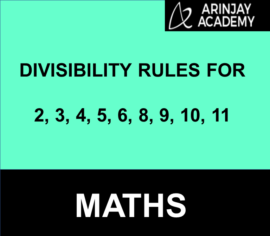Divisibility Rules Of 2 3 4 5 6 9 And 10

So once again finally this is divisible by something.
Divisibility rules of 2 3 4 5 6 9 and 10. A number is divisible by 10 if it ends in a 0. 4 if the last two digits are divisible by 4. A list of divisibility rules for 2 3 4 5 6 7 8 9 10 with examples. 10 if the last.
Divisibility tests for 2 3 4 5 6 7 8 9 10 11 12 and 13 so you can tell if those numbers are factors of a given number or not without dividing with video. So by these rules. Divisibility rule for 2 a number is divisible by 2 if the digit at ones place of that number is divisible by 2 or digit at ones place is 0 2 4 6 8. 5 if the last digit is 5 or 0.
6 if the number passes the divisibility test of 2 and 3. We say that a number is divisible if it can be divided evenly with no. That is if the sum of digits of the number is divisible by 9 then the number itself is divisible by 9. 2 if the last digit is 2 4 6 8 or 0.
A number is divisible by 5 if it ends in a 5 or a 0. Divisibility rules with examples or divisibility rules for 2 3 4 5 6 7 8 9 10 11. A number a is divisible by the number b if a div b has a remainder of zero 0 for example 15 divided by 3 is exactly. The simple way to think about divisibility by 6 is that you have to be divisible by both 2 and 3 in order to be divisible by 6 because the prime factorization of 6 is 2 times 3.
9 if the sum of all the digits can be divided by 9. And this you have a 5 as your ones digit. It s divisible by 5. 3 if the sum of all the digits can be divided by 3.
2 3 4 5 6 9 and 10. Now the number 6. Consider 78532 as the sum of its digits 7 8 5 3 2 is 25 which is not divisible by 9 hence 78532 is not divisible by 9. A number is divisible by 6 if it is divisible by 2 and 3 use both those rules a number is divisible by 9 if the sum of its digits is divisible by 9.
A number is divisible by 4 if the last two digits are divisible by 4.
